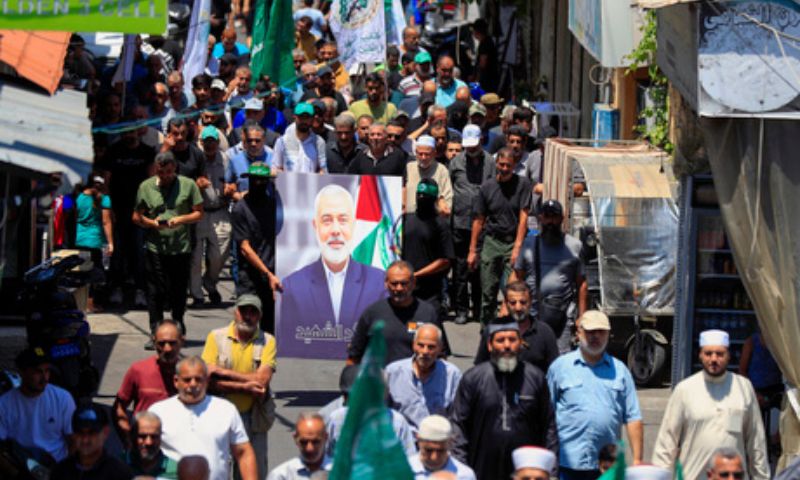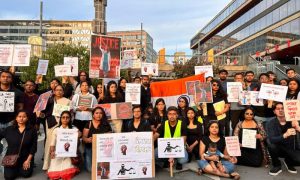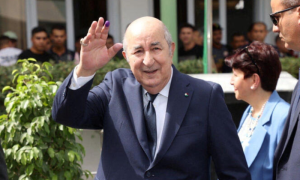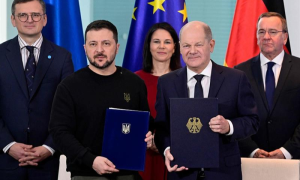BEIRUT: Iran and armed groups backed by Tehran are preparing limited and coordinated action meant to deter Israel but avert all-out war, sources and analysts said, after the assassinations of top Hamas and Hezbollah figures, AFP reported.
On Wednesday, Iranian officials convened in Tehran with representatives from the “axis of resistance,” a coalition of Tehran-backed groups opposed to Israel. The meeting focused on formulating a retaliation strategy following the deaths of Hamas chief Ismail Haniyeh and a top military commander of Hezbollah, Fuad Shukr in Israeli strikes in Tehran and Beirut.
The discussions outlined two primary scenarios for retaliation: a simultaneous response from all parties involved or a staggered response from each faction, as reported by a source close to Hezbollah.
Iran’s Supreme Leader, Ayatollah Ali Khamenei, has vowed severe repercussions for the deaths of Hamas and Hezbollah leaders. Hezbollah’s leader, Hassan Nasrallah, reiterated the call for revenge during Shukr’s funeral, which was marked by intense exchanges of fire between Hezbollah and Israeli forces in southern Lebanon.
Amal Saad, a Hezbollah researcher and lecturer at Cardiff University, said that a coordinated response is highly likely. This response would involve a deepening of tactical coordination between Iran and its allied groups across the region, including Hezbollah, Palestinian factions, the Houthi rebels in Yemen, and Iraq’s Hashed al-Shaabi forces.
A leader from the Islamic Resistance of Iraq mentioned that Iran might lead the initial phase of retaliation, targeting military assets with support from Iraqi, Yemeni, and Syrian factions. Hezbollah is expected to follow with actions that could potentially target civilians in response to the deaths caused by the recent Israeli strike in Beirut, which killed three women and two children.
Despite the anticipated retaliation, experts believe Iran and its allies will aim to avoid a broad-scale conflict. The goal is to apply enough pressure on Israel to deter further actions without provoking an all-out war.
“Iran and Hezbollah will not want to provide Israeli Prime Minister Benjamin Netanyahu with the opportunity to escalate the situation further or draw the US into the conflict,” said Saad.
The White House has commented on the heightened tensions, with National Security Council spokesman John Kirby noting that while the recent killings exacerbate regional tensions, there are no immediate signs of an imminent escalation.
Analyst Ahmad Zeidabadi suggested that Iran’s response will likely be stronger than its previous direct confrontation with Israel in April, when it launched drones and missiles in retaliation for an Israeli strike on its consulate in Damascus.
However, Zeidabadi ruled out a “generalized, all-out war,” emphasizing that Iran’s strategy will focus on deterrence rather than a comprehensive military engagement.
Rodger Shanahan, a Middle East analyst, added that maintaining regime survival is paramount for both Tehran and Hezbollah. While they will exert significant pressure on Israel in support of the Palestinians, they are unlikely to risk an existential threat to their own regimes.






















